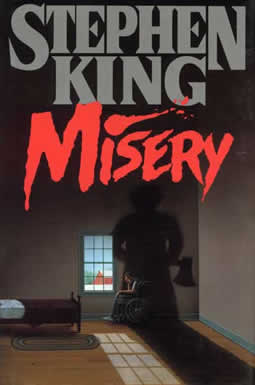I most likely would never have heard of this book if I wasn’t taking this class for Seton Hill. I learned a lot about the craft of writing and story structure from this and will respond accordingly.
Craft: Point of View
A problem I had with Psycho was that there wasn’t enough detail on the psychosis and mentality of Norman Bates. I wanted more than what was given. Then I start reading Church of Dead Girls and I’m drinking out of a fire hose with the information on almost every single person in the town! It really felt like two extremes. But, here is what I didn’t like about the narrative in The Church of Dead Girls.
The POV shifts in a way that I feel like we’ve been told not to do as writers. Sometimes it is first and other times is third. That can be okay. But, there are many times where the narrator is telling us a thought or emotion in a character that he wouldn’t have known that unless he was inside their mind. I know the story is all told from after the events have occurred and after many interviews. However, it was a little annoying to occasionally have something said that could not have been known by the narrator no matter how many interviews.
Craft: Villain creation
Motivation: This is always an area of concern when I write. I need the motivation for my villains to be believable. I can’t stand the movies and stories out there where the villain just wants to destroy the entire planet. What’s the point? You’d be dead with everyone else! But, this novel taught me a lot about motivations.
The Friends group are motivated by fear and revenge. The IIR are motivated by making a statement when they push over the headstones. Donald, is motivated by a need to purge and purify. There are many other examples and depths of character but something finally nailed home to me when I finished the book. Perspective.
My upbringing leads me to a particular perspective while yours will lead you somewhere else. At the end of the book we learn that there are members of the community who don’t fault the members of Friends who destroyed Paul’s home. But, yet, they find fault with Dr. Malloy for shooting his brother. I see it the other way around. I support Dr. Malloy because he was willing to look beyond family to stop a killer and I condemn the Friends for destroying Paul’s home and going against the police. But, then again, how many of us (parents especially) wouldn’t be itching to rip apart every inch of the town to find our own child or to prevent any more children from vanishing. I’m the first to admit that in the case of protecting children I’d personally give up my own rights to ensure their safety. I can’t force anyone else to do the same but I could sympathize with the fear and anger of the community in Church of Dead Girls.
So, this is the mind boggling nature of the mind in people and eventually in creating your own characters. You really need to know their perspective to know how they will react to situations you put them in in the story. I’ve been so focused on making a motivation/back story to my villain that everyone (audience) will accept. But, that’s just not possible. Because everyone has their own perspective. Two people can have the exact same childhood, abuse, neglect, etc. But, they may not turn out the same in the end. One can become a saint and advocate for preventing such treatment of children, while the other can become psychologically damaged by their upbringing and exhibit the same behavior they were a victim of in childhood. The mind is a curious thing and how we as individuals (or our characters) chose to respond and react is what is so fascinating to me.
So, instead of trying to find that one motivation for my villains that everyone will accept, I need to focus on the character individually and decide how they will react with their own back story that will result in their future. So many complexities.


